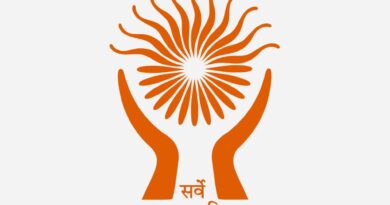SC Issues Notice on Maneka Gandhi’s Challenge to SP’s Ram Bhuwal Nishad’s 2024 LS Election, Calls for Periodic Legal Reviews
(Judicial Quest News Network)
The Supreme Court today issued a notice on senior BJP leader Maneka Gandhi’s appeal challenging the election of Samajwadi Party MP Ram Bhuwal Nishad from the Sultanpur Lok Sabha constituency in the 2024 general elections. This marks a significant legal development in the ongoing dispute over the election results.
The petition is filed through the AOR Supriya Juneja
At the same time, the Court refused to entertain a separate petition filed by Gandhi that challenged Section 81 of the Representation of the People Act (RP Act) of 1951, which deals with the time limit for filing an election petition. This petition was ultimately dismissed as withdrawn, with the liberty for Gandhi to raise the same concerns in a subsequent civil appeal.
A bench of Justices Suryakant and Koteshwar Singh passed the order, stating that after arguments were presented, senior counsel for the petitioner indicated a desire to withdraw the writ petition, with the option to pursue the concerns raised in Civil Appeal No. 10644/2024. This appeal was filed against the judgment dated 14th August 2024, from the Allahabad High Court, which had dismissed Gandhi’s original election petition. The Supreme Court, in this regard, directed that notice be issued on the appeal arising from the Allahabad High Court’s judgment, which found the election petition to be barred by limitation. The Court also granted four weeks for the respondent, Ram Bhuwal Nishad, to file a counter affidavit.
During the hearing, senior advocate Siddharth Luthra, representing Gandhi, argued that the Supreme Court’s previous ruling in Hukumdev Narayan Yadav vs. Lalit Narayan Mishra—which stated that Sections 4 to 24 of the Limitation Act do not apply to proceedings under the RP Act—should be examined. Luthra contended that Nishad had allegedly suppressed material facts regarding several criminal cases pending against him, and argued that voters have a constitutional right to know the true facts about political candidates.
The issue at the heart of the petition concerned the limitation period of 45 days for filing an election petition under Section 81 of the RP Act. Luthra suggested that the court could legislate and establish an alternative limitation period. However, the bench was not convinced by this argument. Justice Suryakant observed that such interference would set a dangerous precedent, as it could discourage people from filing election petitions altogether, defeating the very purpose of the legislation. In response, Luthra argued that the intent of the RP Act was to protect the electorate’s right to know about candidates, and this should be factored into any interpretation of the law.
Justice Suryakant, while addressing the broader issue, expressed the view that laws should periodically be reviewed by the legislature, rather than being subject solely to judicial review. He emphasized the need for periodic legislative reviews to assess whether laws have fulfilled their intended purposes and to identify areas for improvement.
Despite the court’s reluctance to entertain the petition in its current form, it was decided that Gandhi could press her arguments in the civil appeal. In essence, the Supreme Court dismissed the writ petition with the option for Gandhi to pursue her concerns in a subsequent legal proceeding.
Ram Bhuwal Nishad, who defeated Maneka Gandhi in the 2024 Lok Sabha elections, secured a victory with over 44,000 votes. Nishad received 4,44,330 votes, while Gandhi garnered 4,01,156 votes, resulting in her defeat.
Following the election, Gandhi filed an election petition before the Allahabad High Court, challenging Nishad’s victory on the grounds that he failed to disclose the full extent of pending criminal cases against him. While filing his nomination form (Form 26), Nishad had disclosed 8 criminal cases; however, Gandhi alleged that 12 criminal cases were actually pending against him, which was not accurately reported.
On August 14, 2024, the Allahabad High Court dismissed Gandhi’s petition, ruling that it was filed beyond the statutory deadline specified in Section 81 of the RP Act. Gandhi had sought to condone the delay, claiming that she was hospitalized, and that the delay in filing the petition was only one week. However, the High Court dismissed her petition, citing non-compliance with the mandatory timelines under Sections 81 and 86 of the RP Act.
Undeterred, Gandhi appealed the High Court’s decision to the Supreme Court, challenging both the ruling on the limitation period and the interpretation of the RP Act, and seeking redress for the alleged suppression of material facts during the election.




